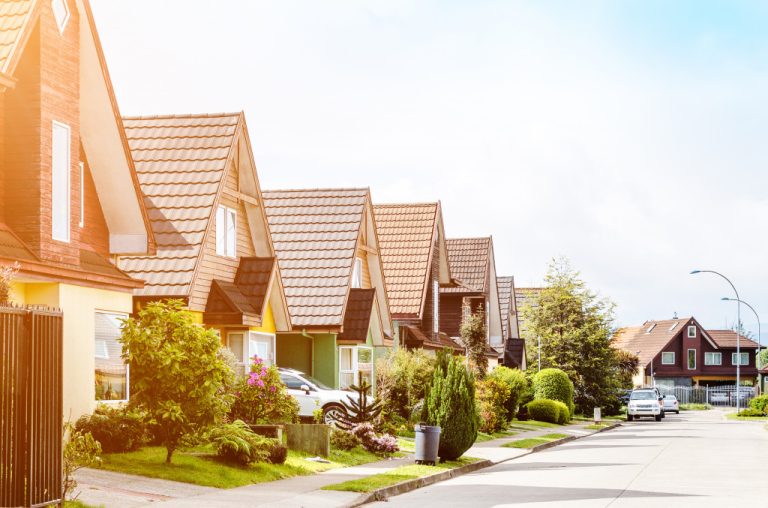- Reduce littering to help keep your neighborhood clean.
- Organize community clean-up days to unite people and work towards a common goal.
- Properly manage waste through reducing, reusing and recycling.
- Utilize street sweeping to remove dirt, debris, and garbage from the streets.
- Encourage pet owners to clean up after their pets so they don’t contribute to your neighborhood’s mess.
Living in a clean neighborhood is a source of pride for many individuals. A clean environment enhances the aesthetic appeal of your community and positively impacts your physical and mental well-being. However, keeping a neighborhood clean is not the sole responsibility of municipal workers or city councils. As a resident, you play an active role in ensuring that your community stays clean. Here are five easy ways to keep your neighborhood clean:
1. Reduce Littering
Littering is one of the primary causes of a dirty neighborhood. It is essential to ensure that all members of your community know the importance of disposing of waste properly. You can educate your neighbors about the impacts of littering and encourage them to dispose of their trash responsibly. You can also volunteer to help clean up any litter that you come across in the community
2. Organize Community Clean-up Days

Organizing community clean-up days is an effective way to bring people together and work towards a common goal. You can coordinate with your neighbors to identify areas in the neighborhood that need cleaning, such as parks, sidewalks, and alleyways. During the clean-up day, volunteers can pick up litter, sweep the streets, and remove debris from public areas. These events not only help to keep the community clean but also promote a sense of community spirit.
3. Proper Waste Management
Proper waste management is an essential component of keeping your community clean. Make sure that your neighborhood has adequate trash bins that are emptied regularly. You can also encourage your neighbors to recycle and compost their waste. These efforts not only keep the community clean but also promote sustainability.
Here are some proper waste management strategies to encourage:
Reduce
Encourage your neighbors to reduce the amount of waste they generate in the first place. Encourage them to think before they buy and only purchase necessary items. This will help reduce their overall waste output and help keep your community clean. Have regular discussions in the neighborhood about different ways to reduce, reuse, and recycle their waste.
Reuse
Suggest creative ways for your neighbors to give a new life to old items rather than throwing them away or recycling them. For instance, suggest donating unwanted clothing or furniture instead of discarding it, or encourage them to use reusable containers instead of single-use plastic bags when grocery shopping.
Recycle

Make sure your neighborhood has a reliable recycling program that everyone in the community can access. Educate your neighbors on what materials can be recycled and how to recycle them properly. Encourage them to ensure all recyclables are clean and sorted before putting them into the designated bins.
Compost
If available, suggest setting up a composting program in the neighborhood. Explain how composting works and why it is important for reducing waste and promoting sustainability. If available, offer tips on starting compost piles and provide resources such as local compost drop-off locations or backyard composting training sessions. Having an active compost program will help divert organic waste from landfills while providing rich soil nutrients. This will ultimately help reduce the environmental impact of your neighborhood.
Educate
Organize educational events such as waste clean-up days or local sustainability workshops to encourage proper waste management in the community. Share informative articles, videos, and reports about proper waste management with your neighbors to ensure everyone is informed and educated on reducing their waste output. Remind them of the importance of keeping the community clean while promoting sustainability. Together, you can work towards a greener future!
Dispose
Encourage proper disposal of non-recyclable items and hazardous materials such as paint cans, oil containers, asbestos, batteries, etc. These items should not be discarded in regular trash bins but rather disposed of properly. Check with your local waste management department to find the best disposal methods and ensure everyone in the community is informed. Proper disposal ensures hazardous materials don’t end up in landfills, which can harm the environment and human health.
4. Utilize Street Sweeping
Municipal street sweeping is an important part of keeping neighborhoods clean. Utilizing professional street sweeping can help remove built-up dirt, debris, and garbage from the streets of your neighborhood. This ensures that the streets are free of hazardous materials and makes it easier for pedestrians to walk around. Professional street sweeping also helps reduce air pollution by preventing dust particles from escaping into the air.
5. Encourage Pet Owners to Clean Up After Their Pets
Pet waste is a common cause of a dirty neighborhoods. It is essential to encourage pet owners to clean up after their pets. You can remind pet owners of the importance of picking up their pet’s waste and provide them with waste bags if necessary. Additionally, you can report any pet waste violations to the appropriate authorities.
Final Thoughts
Keeping your community clean is not a difficult task. By following the tips above, you can contribute significantly to ensuring your neighborhood stays clean and welcoming. Remember, a clean environment is a source of pride and can positively impact the health and well-being of all community members.










